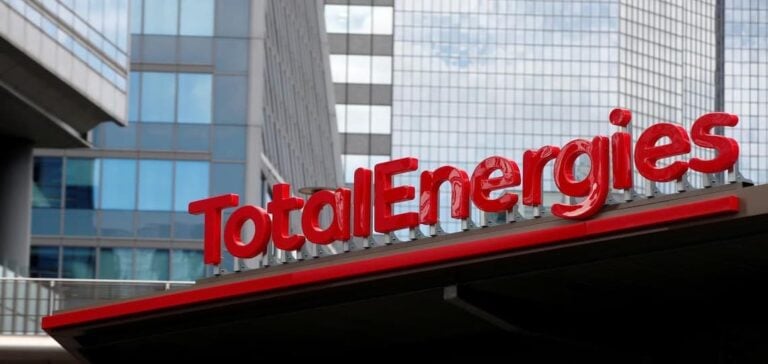French major TotalEnergies, which just reported $4.1 billion in second-quarter net income, is still the second-biggest buyer of natural gas (LNG), denounced the NGO Global Witness on Thursday, calling on Europe to ban this trade to avoid fuelling Moscow’s “war machine”.
The controversial workings of TotalEnergies’ Russian LNG imports
The NGO accuses the company of profiting in part from LNG imports from Russia, where it has a long-term contract in the giant Yamal gas field in Arctic Siberia. “LNG continues to be a key source of revenue for the Kremlin and its war in Ukraine,” Global Witness hammered in a statement, reiterating “its calls for the EU and its member states, including France, to ban imports and trade of Russian LNG” by its companies.
Since the beginning of the year, “Total has purchased nearly 4.2 million cubic meters of Russian LNG”, making the company “the second largest buyer of LNG in that country” just behind Russia, says the London-based NGO. Global Witness has analyzed data from Kpler, a commodities consultancy that tracks the movement of LNG tankers around the world.
The Russian gas frenzy: impact and influence on TotalEnergies
The year 2022 will be marked by a worldwide rush for this gas transported by ship, following Moscow’s decision to dry up its pipelines to Europe, in retaliation for international sanctions in the wake of Russia’s offensive in Ukraine. With this race for gas, prices have soared, boosting the profits of the Western majors, including TotalEnergies in 2022.
In both 2022 and 2023, TotalEnergies imported most of its LNG from the USA (21.1 and 10 million cubic meters respectively), followed by Russia (12 and 4.2 million cubic meters). Even down on 2022, these imports from Russia “still account for nearly 20% of all the LNG that Total has purchased” worldwide, the NGO points out.
TotalEnergies faces controversy: investments in Russia and positioning in the LNG market
“The company continues to buy Russian gas, sending money to the Russian war machine,” denounces Jonathan Noronha-Gant, Campaigner at Global Witness. TotalEnergies, the world’s third-largest LNG operator, has been betting on gas in the USA, the Middle East and Russia for several years now. In this country, it still holds a 20% stake in the Yamal LNG gas field, alongside the private Russian company Novatek (50.1%), “in line with the EU’s decision to maintain supplies of Russian liquefied gas at this stage”, as the Group points out.
TotalEnergies assumes responsibility for them, arguing that Europe needs them because it has no gas pipelines. “If we decided not to take the gas volumes, we would still be obliged to pay for them,” the company also justifies.






















